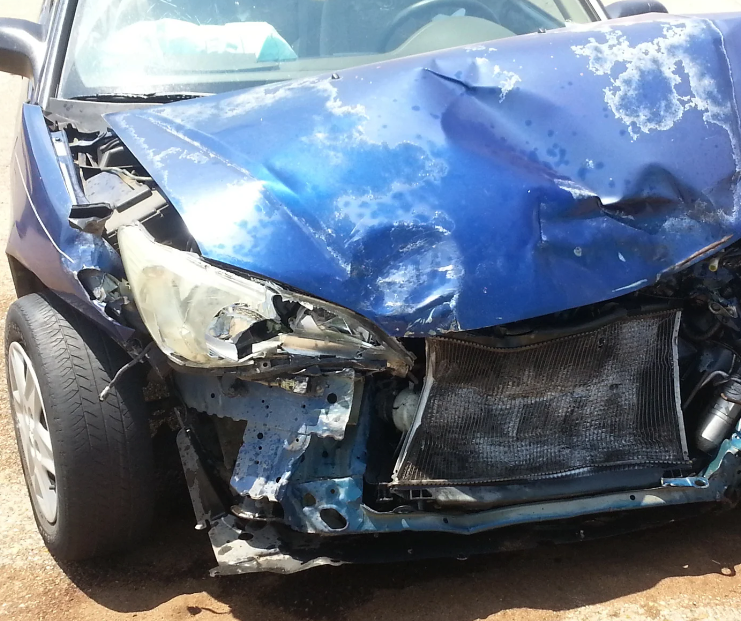Bodily Injury Liability
- $25k per person
- $50k per accident
Your vehicle is an invaluable source of freedom and opportunity. But it’s also one of life’s largest investments that is almost destined to end up as a cost in the long run. Like anything offering freedom, driving a car or truck comes with a level of risk. It’s sadly common to become the victim of someone else’s negligence or simply make a mistake behind the wheel that can end up costing thousands of dollars, or worse. Having a good auto insurance plan in place is crucial to saving your bank account should the worst happen on the road.
Service and experience sets us apart and it starts here.

What Coverage Do I Need?
Not only is it essential to have auto insurance to guard against these risks, but in Wisconsin, it’s illegal to operate a vehicle without a car insurance policy in place. In fact in all but two states, some auto insurance is required to be on the road. Beyond having the minimum coverage, Wisconsin drivers seek policies with the most coverage for the lowest premium. By working with the personal insurance team at Ansay and Associates, you’ll get the right amount of coverage for your needs and get access to plans that fit within your budget.

What's Reqired?
As operators in a fault state, Wisconsin drivers responsible for a collision can be liable for injuries sustained in a car accident (including medical expenses, lost wages, pain and suffering) or property damage. By comparison, no-fault states like Florida, New York or neighboring Minnesota and Michigan allow auto insurance to cover all injuries no matter who is at fault for the incident. Minimum auto insurance coverage requirements in Wisconsin include:
As a driver in WI, you are required to keep proof of insurance handy whenever you get behind the wheel. This can be a physical insurance card traditionally kept in a wallet or glove compartment, but recently can also be saved on a driver’s mobile device for easy retrieval.
Regardless of the U.S. state, two common coverages are always optional to carry. While these aren’t required in Wisconsin, drivers of high-value vehicles may consider additional coverages that extend further than required liability insurance and uninsured/underinsured policies. These optional policies grant coverage and ensures peace of mind for the vehicle owner:
Collision coverage only applies to damages to the policyholder's car, regardless of who was ruled negligent.It will cover single-party incidents in case the policyholder collided with a stationary structure like a tree, building, or fence. Hit and run incidents are also covered under this type of policy. It does not cover medical expenses.
Comprehensive auto coverage protects the policyholder from paying for vehicular damage that occurs when nobody is driving the automobile. For example, hail damage or a tree limb falling on a car or truck would be covered here. Some comprehensive coverage policies also protect against theft and vandalism.


What's Involved?
Required car insurance policies are typically composed of several specific coverages working together to provide assistance for the varying needs of a person involved in a collision, including costs due to medical expenses and vehicle damage.
Liability insurance coverage protects the policyholder from paying out of pocket in case of a car accident (in which they were the cause) that requires payment to the other party. This type of coverage is required in all US states except Virginia and New Hampshire.
Reasons for paying the other party include:
When another person is operating illegally without insurance (or is underinsured) and collides with your vehicle, you may not get the money you need to cover medical expenses and damages and will be forced to pay out of pocket. In these situations, it’s beneficial to hold uninsured/underinsured motorist coverage that will help you recoup the damages.
Also called “no-fault” insurance (and is required in “no-fault” states) this coverage offers payment of medical expenses and lost wages for the policyholder and their passengers in case of an auto accident. This type of coverage is required in some states and not even offered in others. In states where it isn’t offered, drivers may consider a similar coverage called MedPay instead.
Other options
Get protection for you and your ride with help from the independent insurance brokers at Ansay & Associates.
Motorcycle InsuranceA home on wheels requires extensive protection from both drivers and the elements. Our team can help!
RV InsuranceGet protection for your boat or watercraft with help from the insurance brokers at Ansay!
Boat InsuranceContact Us
Get in touch with our team of expert insurance brokers to find the best options for car insurance. Let us introduce you to great coverage that is best suited to your needs. Contact us today!
You Can Always Call Us Toll-Free at: 1 (888) 262-6729